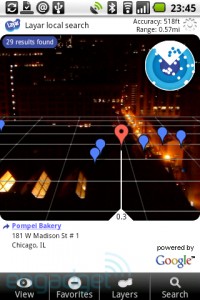I’m at the Digital Humanities And Computer Science (link to my report) colloquium at IIT in Chicago. Garry Wong and I gave a talk on the Big See project and designing visualizations for large-scale information displays. One of things that struck me is that we may be seeing the beginning of the end of digital humanities as a distinct field. Here is what I wrote in the conference report:
The End of Digital Humanities: I can’t help thinking (with just a little evidence) that the age of funding for digital humanities is coming to an end. Let me clarify this. My hunch is that the period when any reasonable digital humanities project seemed neat and innovative is coming to an end and that the funders are getting tired of more tool projects. I’m guessing that we will see a shift to funding content driven projects that use digital methodologies. Thus digital humanities programs may disappear and the projects are shunted into content areas like philosophy, English literature and so on. Accompanying this is a shift to thinking of digital humanities as infrastructure that therefore isn’t for research funding, but instead should be run as a service by professionals. This is the “stop reinventing wheel” argument and in some cases it is accompanied by coercive rhetoric to the effect that if you don’t get on the infrastructure bandwagon and use standards then you will be left out (or not funded.) I guess I am suggesting that we could be seeing a shift in what is considered legitimate research and what is considered closed and therefore ready for infrastructure. The tool project could be on the way out as research as it is moved as a problem into the domain of support (of infrastructure.) Is this a bad thing? It certainly will be a good thing if it leads to robust and widely usable technology. But could it be a cyclical trend where today’s research becomes tomorrows infrastructure to then be rediscovered later as a research problem all over.








